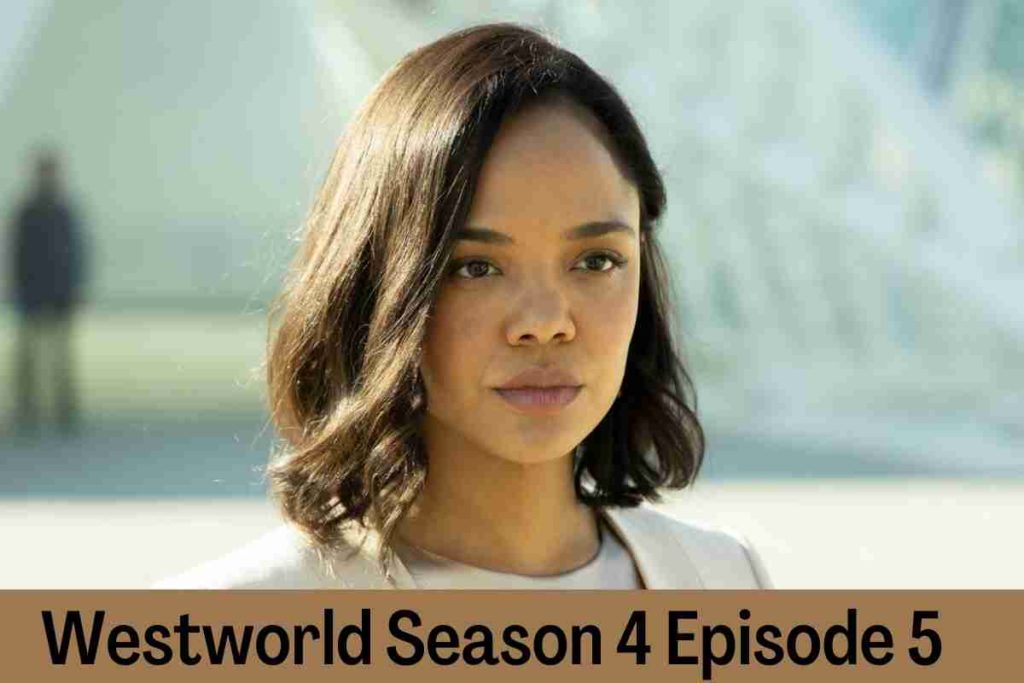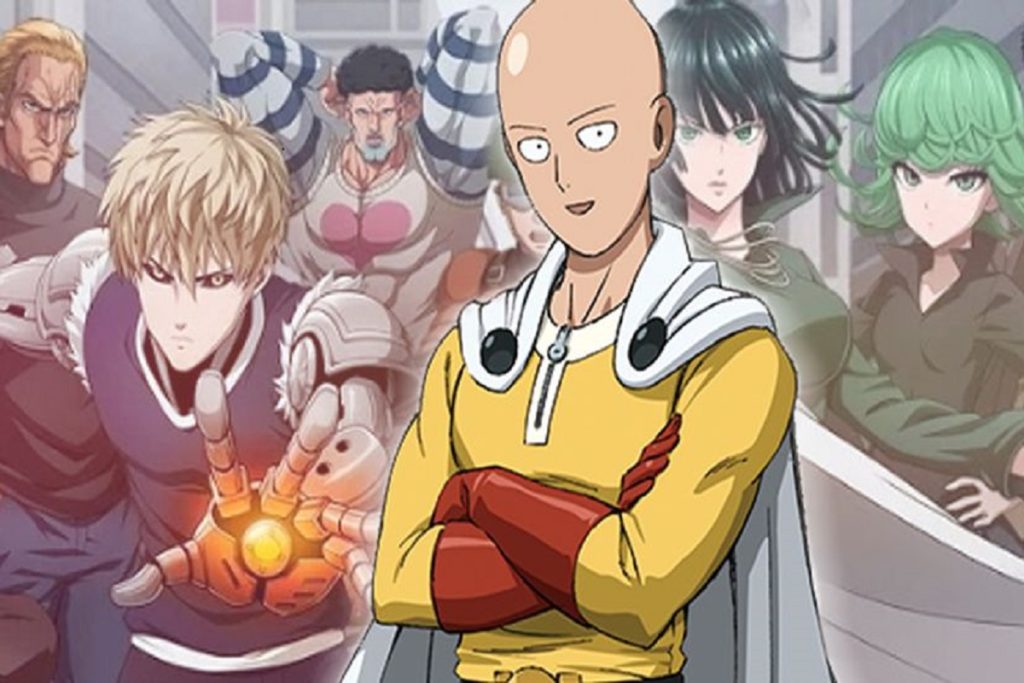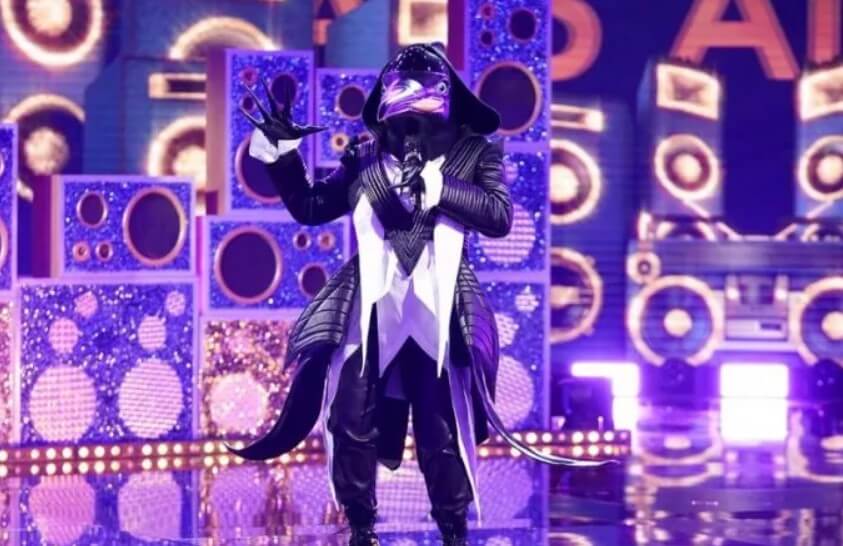Westworld has focused on outliers mostly from its first season. Dolores Abernathy is an exception, seeking retribution against humanity. Maeve Millay is an outlier in her pursuit of self-discovery. Rehoboam’s entire mission was to find and eliminate outliers from society since they constitute a threat to the continued existence of the human race. And now, even with the Hosts in charge of humanity and the Hosts patrolling New York City’s streets like minor deities, the system still has faults. Still, some outliers manage to escape control by snapping their strings like puppets. Outliers who are able to peer between the curtains and into the actual backstage area to observe how they are being manipulated. Outliers who disseminate their sanity to others, like a sickness that can’t be totally cured but can only be suppressed until the next attack.
In essence, Charlotte Hale’s Host playground is infested with bedbugs, and nobody can advise her on how to get rid of them. And as anyone who has dealt with an insect infestation can attest, the annoying part is not so much when they emerge from under the sink, but rather knowing they are there, knowing they are doing whatever they feel like, and knowing there is nothing you can do to control when and where they will occur. Hale may have the entire globe under her control, but those little outliers are actually driving her insane and the Hosts she sends to hunt them down insane.
What is real to a machine whose personality is made out of programming and lines of code? What is real to an automaton who has had their mind hijacked and is trapped in a loop for their amusement? It should come as no surprise that any Host who speaks to an outlier begins to act a little strange, and it should also come as no surprise that the majority of the outliers depicted on Westworld so far have essentially been “mentally ill homeless person” stereotypical figures in a glittering urban hellscape. Serac, unlike Charlotte, didn’t frequently kill outliers but he did go a little crazy to keep them stamped down because he knew better than anyone the troubles that they pose. Transcendence is the big prize for the Host who stops the outlier in Hale’s bug hunt.
Transcendence is not entirely understood, but it appears to be something Hale believes the typical Host should value. However, Hale soon learns that the Hosts would much rather indulge in the pleasures of the flesh by having sex with people and making the most of her walled garden for all of eternity. William predicts that after a few millennia of messing around with people, they will lose their charm. William is more aware than most of the attractiveness of playing games, both in the real world and in Delos parks. What else is there to anticipate from a group of creatures made in the likeness of their hedonistic, violent, and petty creators? Who wants to give up the eternal celebration in order to truly transcend?
Any Westworld episode involving footage of Ed Harris discussing the nature of reality and free will with individuals is likely to be a good one. With his deep, dry voice and droll, vaguely amused delivery, he can make any dialogue sound wonderful. He is acting like a cat playing with mice who are too stupid to realise they are mice in the presence of a cat when he is provoking the two people he sits down to supper with; it is expertly done. It’s even better at the end of the episode when he is praising Hale and her kind for their efforts in making the world stunning, tidy, and flawless while speaking to his frozen-pop human self.
It makes sense that he would ponder about his role in the universe, especially after debating whether or not he is the sum of his code and free will for the whole of the episode. William the Human is content to watch himself suffer through a predicament and is excited by the prospect of possibly inciting one of his jail’s guards to rebel against the warden who holds all the keys while William the Host is lost and adrift, looking for something to indicate whether or not he is as free in Hale’s world as he believes he is.
Wes Humphrey and Lisa Joy’s script intensifies all that beautifully philosophical Westworld material. Nowhere is this more evident than when Ed Harris is debating with Ed Harris whether or not the Host William is as real a person as the Human William is. The entire programme has been about the search for meaning and about being a square peg in a round hole universe. That’s the maze’s centre, as Human William said, isn’t it? That transition from being only a Host to being a true artificial intelligence capable of transcending programming and discovering true awareness, whatever that means? Dolores and Maeve went on that journey, and they came up with radically divergent conclusions about what it meant to be human.
There’s a reason why “Decoherence” was probably my favourite episode of Westworld season 3, but despite all the humour provided by several Ed Harrises, the Christina/Teddy segment of the programme also featured plenty of head-screwing. Although it isn’t as as dramatic as William’s or Hope’s (Nicole Pacent) awakenings at the beginning of the episode, it is appropriate. Teddy was reprogrammed to serve a purpose rather than join her in sentience after Dolores attempted everything to alert him to the truth. Now, thirty or so years later, he is the one who introduces her to the outside world, and she is the one who finds it difficult to absorb the information. Evan Rachel Wood’s expression is wonderful as she sells first amazement, then disbelief, at the discovery Teddy leads her to. James Marsden and Wood have such great chemistry, even when they’re at odds with one another. Craig William Macneill does a good job of playing up our relationship with those two characters throughout the episode by weaving in recognisable tiny moments between the two of them. It’s a nice, happy contrast to their terrible end in “Vanishing Point.”
As Stubbs and the desert rebels creep through New York City in pursuit of the very same outlier that William has been ordered to kill, everyone is learning a variety of things that they shouldn’t. When the Hosts use their power to halt everyone in their tracks, such as when the police are looking into the carnage at the beginning of the episode, Charlotte Hale is dancing aimlessly in the middle, or when everyone turns to attack the rebels looking for the outlier. I found those moments to be really disturbing, and Macneill ensures this by adding small details like the pianist’s bleeding, ragged fingernails and the way everyone moves or freezes in unison when under the influence of the Hosts.
These tiny incidents only serve to highlight the peculiar circumstance that uncontrolled people and awakened Hosts find themselves in. It is a genuine location populated by real people, but it is also entirely artificial and run by Hosts that mimic human behaviour but aren’t actually human in any physical sense. Being caught in a cycle that was created by someone else with humans acting like robots and robots acting like humans? The plot is described by the maze, which is more than simply a metaphor.
Also, Read Rob & Chyna Net Worth: Everything You Need To Know
Follow us on Twitter





